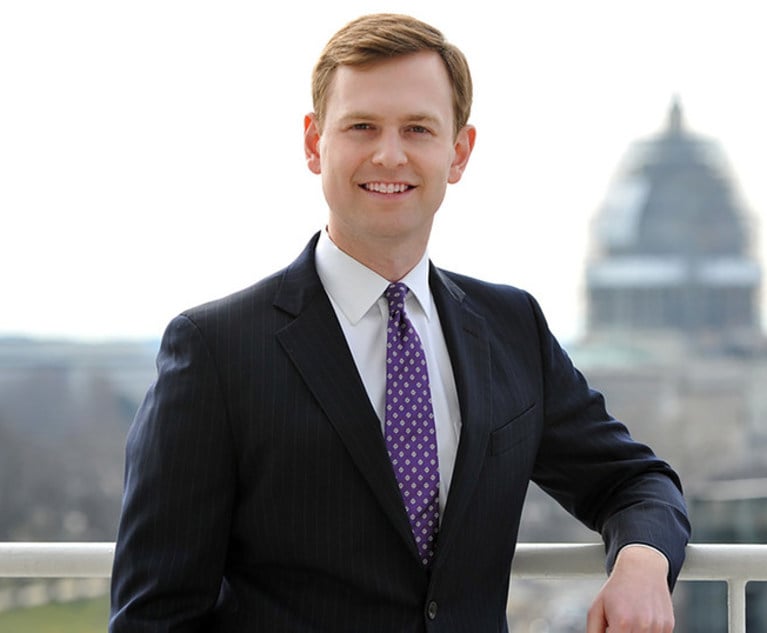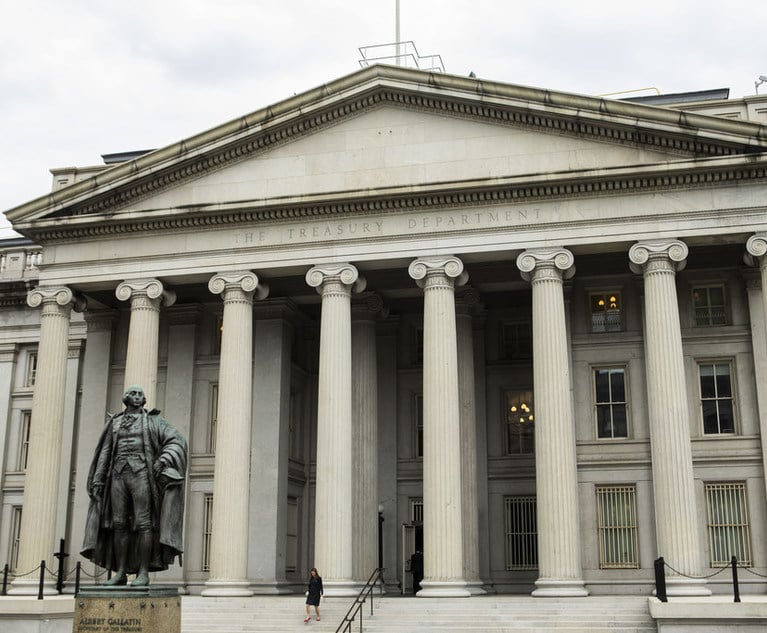Governors criticize big paychecks at colleges and universities
State leaders are challenging unreasonable compensation at tax-exempt organizations.
August 31, 2011 at 08:00 PM
4 minute read
Your child just began classes at San Diego State. You read in the paper the board of trustees just increased the school president's salary by $100,000 (to $400,000). And, during the same meeting they increased student tuition by 12 percent. As you write your congressman you grumble, “There oughta be a law!”
You can save your breath because there already is a law limiting unreasonable compensation in tax-exempt organizations, including colleges and universities. The problem is that the law doesn't matter. The Internal Revenue Service (IRS) can't seem to conclude that even million-dollar compensation packages for school executives are unlawfully unreasonable. The agency put on a good show back in 2008 when it embarked on a college/university compliance initiative, during which it sent detailed questionnaires to 400 public and private schools. The IRS then sent examiners to 35 schools for on-site audits looking at things such as unrelated business income and executive compensation. A ton of money was spent by the schools in answering the questionnaires, and more was spent by the schools and the government during the audits.
Then, nothing. No final report. No new regulations. No tax collected, that we know of (because no report was issued). Apparently the IRS has been dumbstruck on this issue even though colleges and universities constitute one of the largest segments of the non-profit sector in terms of assets and revenue, and as administrative salaries and tuition continue to rise beyond the cost of living. But even as government officials remain silent about high salaries in tax-exempt non-profits, state governors are not.
In July, California Gov. Jerry Brown, who has managed severe cuts in the state's education funding, lashed out at public university leaders for favoring highly paid “hired guns” from around the country over homegrown (and likely less expensive) talent. He zeroed in on San Diego State's decision and inspired at least one legislator to propose legislation banning big executive raises in the Cal State system in the same year it increases tuition.
At about the same time, Vermont Gov. Peter Shumlin criticized a $400,000 payand benefits package for the retiring president of the University of Vermont. In response to a question about the payout at a press conference, he said the cost was “excessive” and looks “more like corporate America than the academic America we used to know.” He added, “You didn't go into academics in the old days to make money.” The package also shocked some university employees, at least one of whom was reported to say the sheer size of it could rekindle efforts to unionize the faculty.
Neither Gov. Brown nor Gov. Shumlin had to conduct a study before making their views known. They spoke out immediately, and because they have executive powers, they probably will be able to take action. Union organizers and state legislators also are in positions to respond. That's why, if you're the disgruntled parent of a public college or university student, or a student yourself, you're wasting your time trying to prod the IRS into action when you see public school tuition increase, arguably to pay for sky-high administrative salaries. An email to your senator or congressman will get a form response, or it might be forwarded to the IRS. Or, it might be lost. The effect is the same.
The IRS is mired in its own procedures. Even if it were set to begin genuine enforcement of the law, it seems unwilling to take on the well-funded advocates for the status quo. Meanwhile, governors seem willing and able to act, at least as far as state-supported schools are concerned. They won't rely on the tax code and its bans on vague concepts such as “unreasonable compensation” and “excess benefit transactions.” They'll just get the job done.
Bruce D. Collins is corporate vice president and general counsel of C-SPAN, based in Washington, D.C. Email him at [email protected].
This content has been archived. It is available through our partners, LexisNexis® and Bloomberg Law.
To view this content, please continue to their sites.
Not a Lexis Subscriber?
Subscribe Now
Not a Bloomberg Law Subscriber?
Subscribe Now
NOT FOR REPRINT
© 2025 ALM Global, LLC, All Rights Reserved. Request academic re-use from www.copyright.com. All other uses, submit a request to [email protected]. For more information visit Asset & Logo Licensing.
You Might Like
View All
Internal Whistleblowing Surged Globally in 2024, So Why Were US Numbers Flat?
6 minute read
FTC Finalizes Child Online Privacy Rule Updates, But Ferguson Eyes Further Changes

Supreme Court Reinstates Corporate Disclosure Law Pending Challenge
Trending Stories
- 1We the People?
- 2New York-Based Skadden Team Joins White & Case Group in Mexico City for Citigroup Demerger
- 3No Two Wildfires Alike: Lawyers Take Different Legal Strategies in California
- 4Poop-Themed Dog Toy OK as Parody, but Still Tarnished Jack Daniel’s Brand, Court Says
- 5Meet the New President of NY's Association of Trial Court Jurists
Who Got The Work
J. Brugh Lower of Gibbons has entered an appearance for industrial equipment supplier Devco Corporation in a pending trademark infringement lawsuit. The suit, accusing the defendant of selling knock-off Graco products, was filed Dec. 18 in New Jersey District Court by Rivkin Radler on behalf of Graco Inc. and Graco Minnesota. The case, assigned to U.S. District Judge Zahid N. Quraishi, is 3:24-cv-11294, Graco Inc. et al v. Devco Corporation.
Who Got The Work
Rebecca Maller-Stein and Kent A. Yalowitz of Arnold & Porter Kaye Scholer have entered their appearances for Hanaco Venture Capital and its executives, Lior Prosor and David Frankel, in a pending securities lawsuit. The action, filed on Dec. 24 in New York Southern District Court by Zell, Aron & Co. on behalf of Goldeneye Advisors, accuses the defendants of negligently and fraudulently managing the plaintiff's $1 million investment. The case, assigned to U.S. District Judge Vernon S. Broderick, is 1:24-cv-09918, Goldeneye Advisors, LLC v. Hanaco Venture Capital, Ltd. et al.
Who Got The Work
Attorneys from A&O Shearman has stepped in as defense counsel for Toronto-Dominion Bank and other defendants in a pending securities class action. The suit, filed Dec. 11 in New York Southern District Court by Bleichmar Fonti & Auld, accuses the defendants of concealing the bank's 'pervasive' deficiencies in regards to its compliance with the Bank Secrecy Act and the quality of its anti-money laundering controls. The case, assigned to U.S. District Judge Arun Subramanian, is 1:24-cv-09445, Gonzalez v. The Toronto-Dominion Bank et al.
Who Got The Work
Crown Castle International, a Pennsylvania company providing shared communications infrastructure, has turned to Luke D. Wolf of Gordon Rees Scully Mansukhani to fend off a pending breach-of-contract lawsuit. The court action, filed Nov. 25 in Michigan Eastern District Court by Hooper Hathaway PC on behalf of The Town Residences LLC, accuses Crown Castle of failing to transfer approximately $30,000 in utility payments from T-Mobile in breach of a roof-top lease and assignment agreement. The case, assigned to U.S. District Judge Susan K. Declercq, is 2:24-cv-13131, The Town Residences LLC v. T-Mobile US, Inc. et al.
Who Got The Work
Wilfred P. Coronato and Daniel M. Schwartz of McCarter & English have stepped in as defense counsel to Electrolux Home Products Inc. in a pending product liability lawsuit. The court action, filed Nov. 26 in New York Eastern District Court by Poulos Lopiccolo PC and Nagel Rice LLP on behalf of David Stern, alleges that the defendant's refrigerators’ drawers and shelving repeatedly break and fall apart within months after purchase. The case, assigned to U.S. District Judge Joan M. Azrack, is 2:24-cv-08204, Stern v. Electrolux Home Products, Inc.
Featured Firms
Law Offices of Gary Martin Hays & Associates, P.C.
(470) 294-1674
Law Offices of Mark E. Salomone
(857) 444-6468
Smith & Hassler
(713) 739-1250







